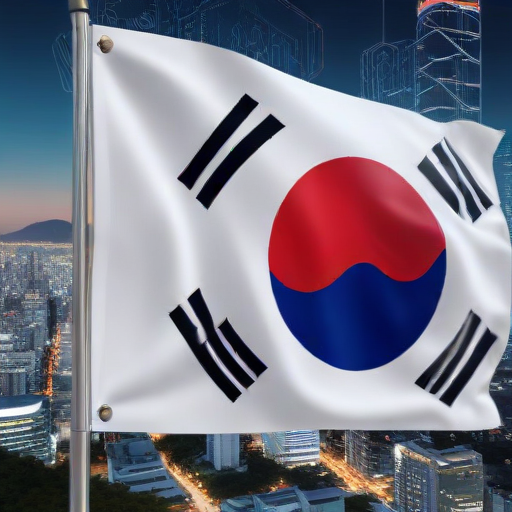South Korea stands out as one of the few economies globally experiencing a surge in productivity driven by artificial intelligence (AI). However, analysts from Bank of America warn that rising tensions between the United States and China regarding semiconductor technology may pose risks to this growth.
According to a report by Bank of America Global Research, the semiconductor sector is vital for South Korea, representing 17% of the nation’s total exports. The report highlights that South Korea has reaped significant benefits from the AI boom, with exports in this area rising over 50% year-over-year. The analysts predict that South Korea’s commitment to investing heavily in AI research and development, coupled with an increasing number of AI-related patents, will further bolster its strength in AI adoption.
Nonetheless, there are concerns over geopolitical challenges that could impact the semiconductor supply chain. The ongoing friction between the U.S. and China is particularly relevant, as more than 30% of South Korea’s semiconductor exports were directed to China and Hong Kong in 2023, with a similar percentage going to the U.S.
Bank of America analysts caution that should the U.S. impose stricter trade restrictions on advanced and AI-related chip exports to China, it could significantly impact South Korea’s memory semiconductor market. Additionally, South Korean manufacturers rely on China for critical components and equipment needed for chipmaking. Any disruption in this supply chain due to geopolitical tensions could hinder their capacity to produce chips.
The U.S. has reportedly requested that South Korea limit the export of specific chipmaking equipment and technology to China, especially tools used to create advanced logic chips and DRAM memory chips. South Korean officials are reportedly deliberating on this request, taking into consideration the potential impact on major local firms like Samsung and SK Hynix, which have significant operations in China.
Furthermore, the Biden administration is contemplating implementing export controls that could affect allies supplying chipmaking tools to China. Under the proposed regulations, no goods manufactured with a set percentage of U.S. intellectual property could be exported to any country.
In summary, while South Korea capitalizes on the AI revolution and expands its semiconductor exports, the looming geopolitical tensions create uncertainties that could affect its growth trajectory in this critical sector.
Despite these challenges, there is a ray of hope in South Korea’s strong foundation in AI research, which positions it well for potential breakthroughs and innovative advancements in the technology landscape. By continuing to invest in its capabilities and diversifying its partnerships, South Korea can enhance its resilience in navigating the complexities of global trade and technological progress.
